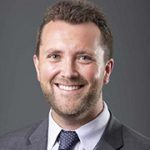Block 1: Foundations of Biomedical Sciences
The Foundations Course is designed to provide students with a basis for understanding cell and molecular biology, biochemistry, genetics, functional anatomy, basic pharmacology, core biophysical principles, and the pathological changes that alter the normal structure/function relationships of cells, tissues and organs. It will culminate by applying these principles in the context of clinical oncology. The topics covered will include normal cell and tissue structure, protein structure and function, DNA replication, gene expression, application of proteomic, genomic and genetic testing (and the ethical issues that accompany these tests), nucleic acid based therapies (gene therapy, siRNA, crispr-CAS9), animal models for disease, protein targeting, pharmacokinetics, pharmacodynamics, drug metabolism, the regulatory aspects of modern drug approvals and uses, signal transduction, cell cycle, the molecular basis of cancer, the use of imaging and laboratory tests for the diagnosis and monitoring of cancer, and an introduction to the treatment of cancer. At appropriate points in the course, several longitudinal curricula will be introduced, including imaging, nutrition, pediatrics, and health and human values human values (health care ethics, professionalism, health equity and cultural awareness). All of these longitudinal curricula and the fundamental principles of cancer will re-appear throughout the organ system portion of the preclinical curriculum.
|
Course Leader

Larry Myers, PhD
|
Block 2: Infection, Inflammation, and Immunity (I3)
The I3 Course explores the interrelation between microorganisms and health. The course will introduce the fundamentals of microorganisms (including bacteria, viruses, fungi, and parasites), and the foundational science of the immune system. Positive and negative aspects of human: microbe interactions will be explored (including the role of the microbiome in maintaining homeostasis and health, and the epidemiology and pathology of infectious diseases), in parallel with the function of the immune system (to maintain homeostasis and respond to ever-evolving threats, and to drive pathology and disease). Emphasis will be placed on the relationship between microbial structure/function and the resultant pathology; the nature of effective, ineffective, and aberrant immune responses; mechanisms of anti-microbial therapies; and the design and deployment of vaccines. Beyond immune: microbe interactions, the course will also introduce foundational functions of the immune system in human health and disease, including allergy/hypersensitivity, autoimmunity, transplantation, and cancer immunotherapy. |
Course Leader

Rich Zuckerman, MD
|
Block 2: Hematology
The Hematology Course will provide students an understanding of the normal development, metabolism and function of cellular components of blood and hematopoietic organs as well the pathophysiology and clinical approach to the associated benign and malignant hematological disorders. This will be integrated with the concurrent Infection & Immunology (I^2) course. The topics covered will include normal hematopoiesis, normal function and metabolism of red blood cells, white blood cells and platelets and the relevant hematological disorders that may develop (e.g. anemia, thrombocytopenia) for each cell line, hemostasis, coagulation, thrombosis, disorders of coagulation, thrombotic disorders, leukemias, lymphomas, plasma cell dyscrasias, stem cell transplant, and transfusion medicine. During the course relevant components of the longitudinal curricula will be integrated including imaging, nutrition, pediatrics, pharmacology, biochemistry, genetics, physiology, and health and human values. |
Course Leader

Alex Fuld, MD |
Block 3: Cardiovascular Medicine
The Cardiovascular Medicine Course provides a comprehensive overview of the cardiovascular system in its normal physiological state as well as in commonly encountered disease states. The course covers relevant material from the fields of anatomy, embryology, cell biology, genetics, metabolism, and pharmacology presented in a manner that facilitates development of a sound base of knowledge upon which to build. Students will be introduced to key concepts from cardiovascular physiology, pathology and pathophysiology in order to develop an understanding of the basic mechanisms that underlie the function of the cardiovascular system in both well and diseased states. Special emphasis will be placed on integration of knowledge, as well as the development of sound clinical reasoning and problem-solving skills. Learners will be introduced to fundamental concepts and develop skills necessary for accurate interpretation of specific cardiovascular tests including laboratory testing, the electrocardiogram, cardiovascular imaging and hemodynamic assessment. Finally, this course integrates the “science of medicine” with the medical humanities by facilitating discussion related to medical ethics, health care disparities and end-of-life issues. |
Course Leaders

Nena L. Mason, PhD

Shawn Ahmad, MD |
Block 3: Respiratory Medicine
The EHV Longitudinal Curriculum will focus on related topics, content, and pedagogy from health care ethics, professionalism, medical humanities, and other related interdisciplinary areas into the four-year Geisel curriculum and culture. The goal is to ensure that all student-physicians graduating from the Geisel School of Medicine at Dartmouth have the knowledge and skills: 1) To be aware and demonstrate an understanding of fundamental health care ethics principles and professional standards. 2) To recognize and systematically address common ethical issues in clinical care through coherent ethical reasoning. 3) To understand the cultural and social context in which students will be practicing medicine. 4) To describe the role and accessibility of ethics resources in health care organizations. 5) To be attentive and open to varied perspectives and experiences of patients so as to exhibit compassion for patients, colleagues, and oneself. |
Course Leader

Hal Manning, MD |
Block 4: GI, Metabolism, and Nutrition
The GI, Metabolism, and Nutrition Course is designed to consider the normal structure and function as well as the pathology and clinical pathophysiology of the gastrointestinal system and its role in health and disease. Specific organs that will be discussed from a clinical perspective include the Esophagus, Stomach, Small Intestine, Large Intestine, Liver, Gallbladder, and Pancreas. As the primary organ system involved in providing nutritional support of the body, the principles of intermediate carbon metabolism in the context of human biology will be a major feature of the course.This course will be the central nexus for study of metabolic disorders, including obesity and obesity related health conditions. This course will be the home of metabolic disease and obesity, and GI related endocrine signaling (in coordination with our sister ‘endocrinology’ course). Metabolism of diabetes and pancreas related content will also be carefully coordinated with our sister ‘endocrinology’ course. The GI/Metabolism course will share cancer metabolism and heart disease risk with other courses such as endocrine and the cardiovascular systems and will share responsibility for understanding of neuropeptide control of appetite and metabolism with the nervous system course. |
Course Leaders

Steven Bensen, MD

Larry Myers, PhD |
Block 4: Endocrinology
The world of Endocrinology permeates all aspects of medicine. In this course, we aim to provide an exciting introduction to the general principles of hormone action, and the normal function and disease states of the major endocrine systems, which include pituitary, thyroid, parathyroid-bone, adrenal, and pancreatic islet systems. Normal physiology, the hormones involved, the causes and consequences of excess or deficiency of hormones, clinical manifestations, and general principles of therapy for the more common disorders will be covered for each system. Basic concepts of the gonadal system will be introduced, to later segue into greater detail in our sibling course, Reproductive Endocrinology, which follows in close succession. We will also have a unit on Transgender Medicine which will bring awareness to medical management as well as psychosocial considerations of this important and evolving aspect of Endocrinology. |
Course Leader

Andrew Crawford, MD |
Block 4: Reproductive Medicine
Reproduction is the process to which we owe our existence. The fascinating orchestration of individual behavioral traits, development, structure, physiology and societal influences all bear on the propagation of our species. Our exploration of this process will begin with the study of embryology and normal anatomy. The normal reproductive endocrine system and associated abnormalities will be covered in the context of the fetal development, puberty, conception, and menopause. We will discuss an overview of fertility management, gestation and parturition and delve into the pathology, pathophysiology, diagnosis and treatment of a variety of disorders of the vagina, uterus, fallopian tubes, ovaries, breasts, penis, testes and prostate. Portions of the course will be framed in the context of understanding the effects of the traditional and increasingly less tolerated undervaluing of women in society and how this impacts the delivery of reproductive care, especially for marginalized groups. The course will also consider topics related to a variety of themes such as screening, cancer, ethics (including reproductive rights), imaging, and obesity. Intentional repetition or expansion of related material from other courses will be integrated to reinforce key concepts. The material will be presented in small and large groups sessions, as well as labs, self-study, and case conferences. These formats will provide an opportunity to review, apply and synthesize foundational concepts. |
Course Leaders

Paul Hanissian, MD

Timothy Fisher, MD |
Block 5: Renal Medicine
The Renal Medicine Course introduces a wide spectrum of information about the kidneys and urinary system both from the perspective of normal function as well as pathology and pathophysiology and treatment of disorders. Particular areas of focus include normal structure (including gross, microscopic and imaging) and function of the urinary system as well as the kidney’s role in fluid homeostasis, control of electrolytes, regulation of blood pressure, and acid base balance, and mineral regulation. Disorders will be addressed from a perspective of pathology, pathophysiology, clinical presentation and management (including pharmacologic). These disorders will include fluid and electrolyte disorders, vascular disorders, congenital anomalies, renal stones, genetic diseases, chronic kidney disease, inflammatory/immune disorders, acute kidney injury, obstructive uropathy, neoplastic disease, and renal manifestations of systemic diseases. Discussions of treatment will include pharmacologic management, nutritional management, risk factor modification, and indications for and socioeconomic impact of renal replacement therapy. The goal is to provide the student with a systematic approach to patients with renal, electrolyte and urinary system disorders. Clinical correlations with basic physiology are stressed. Clinical problem solving is emphasized. |
Course Leader

Charles Hopley, MD, MPH |
Block 5: Dermatology, Rheumatology, and Orthopedics
The Dermatology, Rheumatology, and Orthopedics Course will introduce the concepts of common and important dermatologic conditions, non-inflammatory and inflammatory conditions, and diseases of the musculoskeletal system. The course will integrate anatomy, CTO, genetics, imaging, and rehabilitation in approaching these varied and common complaints/conditions/diseases. The student will gain a broad exposure/introduction to common orthopedic conditions and injuries of the appendicular and axial skeleton. The fundamental understanding of orthopedic conditions will require knowledge MSK gross anatomy (muscles, tendons, bone and joints) as well as cellular anatomy of the tissues (myocytes, osteoblasts, osteoclasts, fibroblasts, etc). The dermatology content will be divided into two overarching topics: rashes and skin lesions. Histopathology, pathogenesis, natural history, diagnostic tests, and treatment are covered when appropriate. The course will also use principles of immunology to explain and distinguish between the systemic inflammatory diseases in rheumatology including lupus, scleroderma, MCTD, RA, spondyloarthritis, gout, CPPD. Rheumatology will concentrate on the immunologic response of the MSK to inflammation and dysregulated immune function that manifest as systemic diseases that involve the articular structures as well as extra-articular disease. A highlight of the course for many is a 2 hour in-clinic session where students in small groups, led by a dermatologist or dermatology resident interact with real dermatology patients. The focus is on professionalism (hand hygiene, draping patients, proper introductions) and succinctly describing skin findings. In all areas, the effect of population health, nutrition, pain control and pediatrics will be included. The content aims to prepare students for their careers in various fields of medicine as well as preparation for USMLE Step I. |
Course Leaders

Alicia Dagrosa, MD, MBA

Scott Pompa, MD

James Ames, MD,MD |
Block 6: Neuroscience and Neurology
The Neuroscience and Neurology Course is offered in the second year of the MD curriculum and provides a comprehensive overview of the nervous system in its normal state as well as in disease states. The course integrates relevant material from the fields of anatomy, embryology, physiology, pathology, pharmacology, and clinical neurology. Special emphasis will be placed on clinical lesion localization, on integration of knowledge across disciplines, and the development of clinical reasoning and clinical problem-solving skills. Students will be encouraged to develop skills necessary for interpretation of neurological symptoms and tests, including the neurological exam, laboratory testing, electrodiagnostic studies, as well as brain and spinal cord imaging, and neurovascular imaging. This course will also touch upon medical ethics, health care disparities, end-of-life issues and brain health across the lifespan. |
Course Leaders

Thomas Thesen, PhD

Rebecca Thompson, MD |
Block 6: Psychiatry
The Psychiatry Course is designed to give students an overview of Psychiatry with an emphasis on knowledge and skills necessary for any physician. The course consists of large group sessions, small group interviewing sessions, and concurrent PBL sessions. The large group sessions will cover major areas of psychiatric assessment and psychopathology-clinical features, pathophysiology, epidemiology, and treatment principles. Lectures are supplemented by live patient or video presentations. A series of weekly small group sessions will allow you the opportunity to observe and participate in patient interviews and learn about the process of differential diagnosis in psychiatry. It is our hope that, over the next term, you will enhance your assessment skills and gain an appreciation of the importance of psychopathology in all of medicine. |
Course Leader

Dax Volle, MD |
Block 7: Medical Science Integrations: Applications through Clinical Cases
MDED-IC1-M1 Problem Based Learning
The Integrated Clinical Cases (PBL) Curriculum will focus on integrating material from all of the courses and longitudinal curricula in Phase 1, together with vertical integration of material felt essential for the clerkships. Clinical cases centered around health, disease, and illness that students should expect to manage in their clerkships will be integrated with foundational science content from Phase 1. Likewise, essential and well-emphasized foundational science content throughout Phase 1 (and also high yield for USMLE Step 1) will be discussed and applied to the same clerkship-relevant clinical casesMDED-IC1-M2 Problem Based Learning
The Medical Science Integrations course will focus on integrating material from all of the courses and longitudinal curricula in Phase 1, together with vertical integration of material felt essential for the clerkships. Clinical cases centered around health, disease, and illness that students should expect to manage in their clerkships will be integrated with foundational science content from Phase 1. Likewise, essential and well-emphasized foundational science content throughout Phase 1 (and also high yield for USMLE Step 1) will be discussed and applied to the same clerkship-relevant clinical cases. The course format will also integrate material and/or pedagogy practiced in On Doctoring and Patients & Populations |
Course Leader

Alex Fuld, MD |